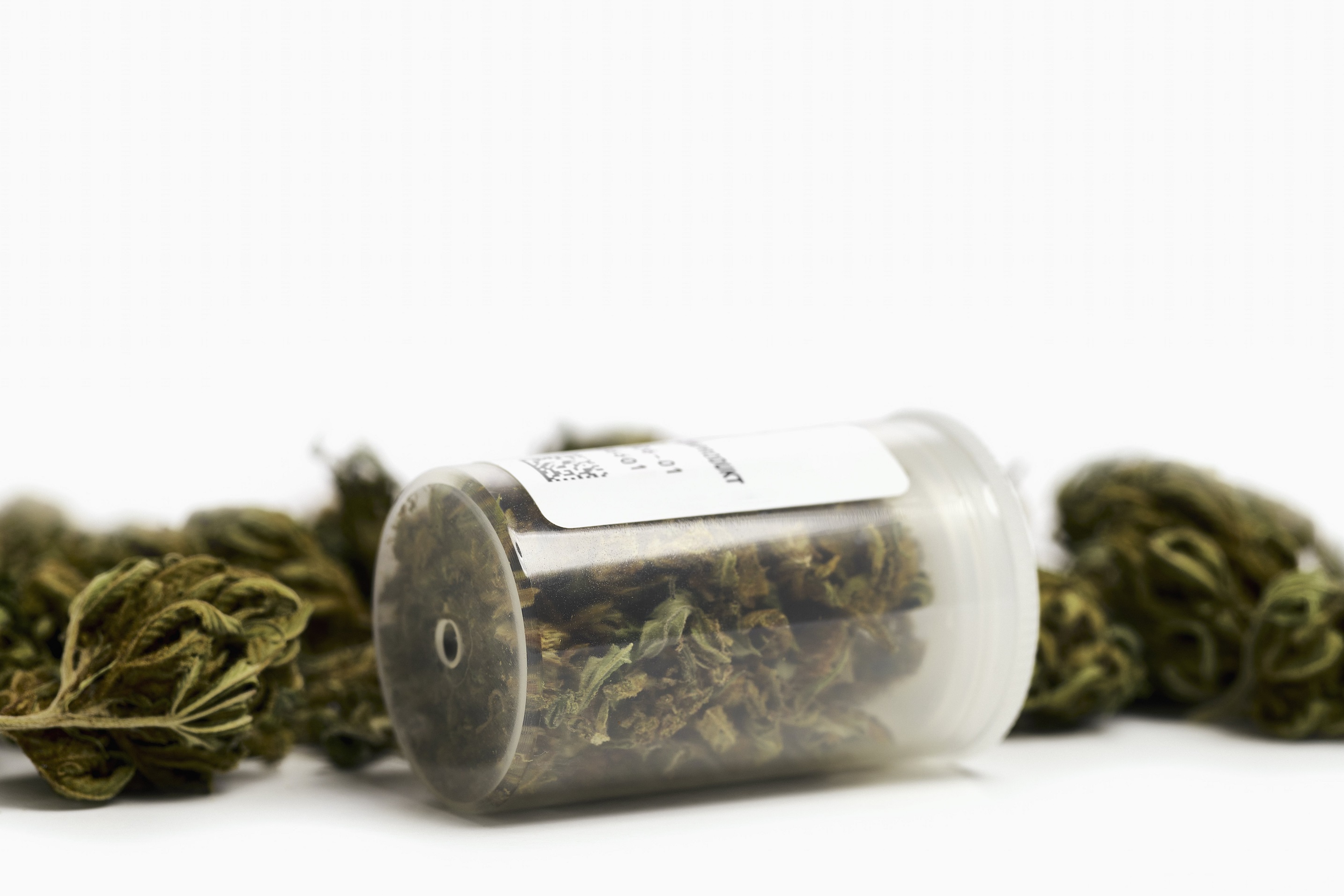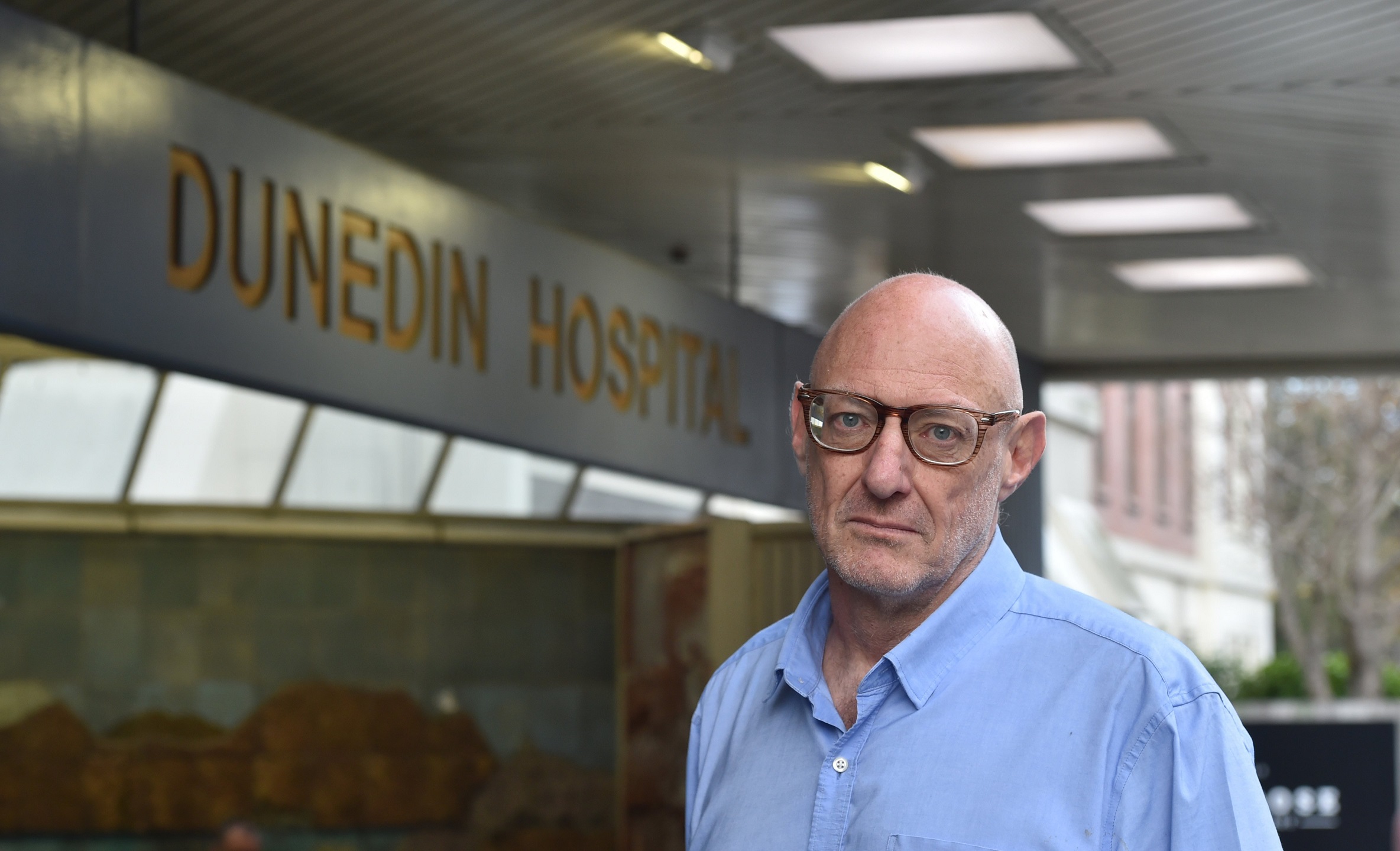
Greg Marshall has the look of a man who has had enough.
Enough of the crushing weight of the bureaucracy confronting his Southland start-up; a medicinal cannabis venture that he has spent five years on now — investing, researching, grafting.
Despite New Zealand’s medicinal cannabis scheme being more than three years old, so far not one of the more than 40 companies the scheme has licensed has been able to process and sell New Zealand-grown cannabis to New Zealanders. Among them is Greg Marshall’s company, one that, whatever your personal beliefs on cannabis, could be doing good things.
From providing cancer patients a vastly cheaper medicine — reducing pharmaceutical costs for some patients from $1000 a month to $200, lightening the burden on already-struggling families — to offering southern farmers a path to a market for a new, high-profit product, to more jobs, more tax dollars, to invigorated rural communities, Marshall talks of its potential.
It’s even a climate story, he says, conceivably reducing the dairy herd by 10% in Southland, with the equivalent carbon saving of a city of two million.
But, to date, none of these hopes have been realised.
If anyone was going to make a success of this, it was Marshall; a man with an impressive track record of success in the North American industry who raised $20 million in capital for his last venture, a medicinal cannabis company now listed on the Canadian stock exchange. He saw an opportunity in New Zealand, and took it. But he, like many, feels thwarted at every turn.
Now, having exhausting all possible avenues, a lot of money, and a lot of time, he is telling his story.
In late 2018, the Misuse of Drugs Act was amended and medicinal cannabis became available to terminal patients. With a prescription from your doctor you could buy cannabis products from the pharmacy. It was a boon to patients who had been buying illegal and unregulated cannabis on the black market.
Initially, the process was cheap for patients, and appeared to herald a profitable and innovative new sector; investors got interested and companies formed, universities started planning research. Then the government decided to regulate it through the 2020 Medicinal Cannabis Scheme. Which was the right thing and the safe thing. Except, both growers and patients say they have since been caught up in a bureaucratic nightmare that is working for no-one.
The Medicinal Cannabis Scheme has the strictest regulations in the world, Marshall says. Regulations so strict that to overcome them the only company to sell homegrown cannabis to New Zealanders is exporting material to Australia, processing it there, and re-importing it back.
The scheme is beset by a multitude of issues, critics claim. Those critics include licencees, doctors, patients, and industry insiders. Critics who are keen to share their experiences, but reluctant to be named. The first issue is a set of minimum standards that suppliers must reach. Some of the industry, Marshall included, say that reaching these standards means the quality of the product is compromised, reducing the medicinal benefit of the material.
The second issue, and one that is concerning most of New Zealand’s small players, is the requirement for good manufacturing practice (GMP), systems to be implemented in factories manufacturing medicinal cannabis. Achieving GMP has a lead time of 18 months and the cost is in the millions; once in place, the certification can triple staffing, says Marshall. The result of this is that so far only two companies in New Zealand, the biggest players, Helius Therapeutics and Cannasouth, have been able to afford this level of investment, though the process is so slow that none are profiting from the certification yet.
Then there is the decision to adopt European standards. Every aspect of anything to do with cannabis, whether exporting or importing, has to meet those European standards, rather than offering companies flexibility to meet the standards of other countries, such as Australia or North America.
These three issues are coming together in a perfect storm, say the people spoken to for this story, resulting in companies using loopholes: such as importing cannabis flower as a tea, for which a higher level of moisture is allowed.
"Less than 10% of people use it as a tea," one licensee says.
"No-one is using it as a tea," a medicinal cannabis user tells me. "Literally everyone is smoking or vaping it".
But this is not to say there are not winners in the system. The scheme is working for big pharmaceutical companies and importers who ship overseas products into New Zealand, at, the critics argue, vastly inflated prices.

"Basically, it is just so rich people can get high," said one patient who had a prescription and also asked not to be named.
Apart from the industry, those with the most to lose are the patients.
The first question is, of course, does it work? Anecdotally, that is a resounding yes.
Katy Thomas’ son, Eddy, had his first "fall-down" seizure at the age of 2. He was in and out of hospital, on pharmaceutical drug after pharmaceutical drug. None worked, but all left some mark. Some increased seizures, some left him psychotic, one left him non-verbal. Katy, at a loss and at her lowest ebb, was in the hospital with her friend.
"She had been trying to talk me into it for a while, but I was resistant to medical cannabis. I only knew about THC."
At Eddy’s bedside, after watching his small body convulse, she agreed to give him half a pea-sized drop of CBD oil. Instantly he stopped seizing.
Given that sort of experience, you might expect there to be considerable interest among the medical fraternity. But there is reason to believe that’s not the case.
One radiation oncology specialist doctor spoken to for this article didn’t know it was available legally. He assumed patients were getting it from the informal economy.
"If this was a new drug from a pharmaceutical company we would get glossy brochures and people coming out to tell us about it. For this [cannabis] there is the odd journal article," said Dr David Kent, a GP who works in South Dunedin.
Massey University did a study that showed two thirds of doctors were turning down requests for cannabis prescriptions. Katy says, in Auckland at least, neurologists have to try and fail on five different pharmaceutical drugs before they can suggest medicinal cannabis. That means giving very small children powerful and possibly addictive drugs while they have uncontrolled seizures that could be causing lasting brain damage all while knowing there might be a safer, feasibly more effective, option.
The New Zealand Drug Foundation found that only 6% of patients were using prescriptions to get cannabis — the other 94% buying it on the street. Unregulated, illegal and unsafe.
Cost is a huge driver for this. A pharmacist interviewed for this story had a patient paying $290 a week for their medicinal cannabis. That is $15,000 a year — many times the cost in comparable countries.
In Victoria, Australia, Katy Thomas says, there is government funding and compassionate programmes for children. Here the price she pays includes tax on medication collected in the UK as well as New Zealand tax and custom clearance costs.
A doctor, who wanted to go unnamed, says that in comparison to prices in the US, where he is from, "it is hugely marked up. It is a rip off".
Katy’s story is a particularly poignant example of all that is wrong. She goes through her invoices for the past two months over the phone. In that time, she spent $160 a day, $4950 a month. Conservatively.
Marshall says that if the regulatory regime allowed him to sell his products, he could provide medicinal cannabis to the market for 80% less than current prices.
"It’s very expensive," confirms Keith Newton, pharmacist and owner of Mornington Pharmacy.
"I am not sure why. It’s probably around the regulations ... We do try to keep the cost to the patients down with lower than normal margins. We get really good feedback on how effective they are."
A further issue for pharmacies is that cannabis can’t be kept in stock by pharmacists. They must get the prescription, and order just that batch for the patient. Conversely, pharmacists can keep arguably much more dangerous drugs, such as opioids, in stock.

Research Assoc Prof Pat Silcock, manager of the University of Otago’s Product Development Research Centre, who had planned cannabis research on hold for the past two years, says there is clearly a need for regulation and control, but current regulations are probably stifling innovation.
Another unintended consequence of New Zealand’s strict regulations, reticent GP community, and sky-high price is a community divided. Those who can afford it go the legal route, and those at the margins are forced into criminality. Massey University’s study cited Maori and those on lower incomes as the least likely to engage with medicinal cannabis. Maori children are also 40% more likely to have epilepsy.
Because medicinal cannabis is not integrated into the healthcare system, patients such as Eddy Thomas are alone. Katy must take his medicine into the hospital and give it to him herself. Acting as her own prescribing clinician, without expert support or guidance.
But, back to Greg Marshall. In 2018 he formed his company, SOMA, and in 2019 partnered to establish Southern Medicinal Ltd (SML) Group. By the end of 2020 SML was operational, with an indoor hydroponic and an outdoor distributed cultivation model, accessing nearby farms to grow on.
By 2021 Marshall’s business was producing medicinal cannabis, a product Marshall is clearly passionate about. Not just THC and CBD, the cannabis compounds that are used as medicine now, but also the little-studied terpenoids and entire cannabinoid system. Marshall sees a brave new world of scientific research, new therapies, and through these, the potential for huge revenues.
However, these high hopes remain unrealised. Marshall blames it on the Medicinal Cannabis Scheme, which is governed by Medsafe.
Medsafe Group Manager Chris James says the scheme "was established to improve access to quality medicinal cannabis products for New Zealand patients by enabling the cultivation and the manufacture of medicinal cannabis products in New Zealand, and the import of products from overseas".
"The minimum quality standard has been designed to provide doctors with confidence in the quality and consistency of medicinal cannabis products that they prescribe to patients. This ensures that a product is safe to consume, of high quality, free from contaminants (such as pesticides and heavy metals), stable at the recommended storage conditions and contains the amount of ingredients that are stated on the label."
There was public consultation on the standards, James says.
Using GMP is consistent with quality requirements for medicines and is internationally accepted as regulatory best practice, used by other countries as such and was also the subject of public consultation, he says.
James also says the Ministry of Health is reviewing the regulatory settings.
However, Marshall says the fundamental aim to improve access is not being met, and the blame for that sits with Medsafe.
The truth is tangled, but Marshall’s experience captures what many commentators are saying, the regime is too stringent, proving unworkable, stymies innovation and business, and harms patients.
Marshall’s specific problems are trifold. Firstly, the minimum quality standards, in particular those around loss on drying that, he contends, result in a substandard product "like clay" that causes terpenoids and volatiles to evaporate. He has argued for other regulations to be used, like those in Australia or North America, that achieve the same levels of safety without compromising quality.
Marshall, like many other smaller players, says that the GMP is impossible to attain. He argues that batch testing would be both safer for the end user and workable for the industry, lowering the cost to produce by 75%.
Marshall sees flaws in both the management of Medsafe and the operation of the Medicinal Cannabis Scheme. So serious does he consider his concerns he has applied for whistleblower status, and says there is a network of pharmacies that will supply his medicinal cannabis products in an act of civil disobedience in a month.
A panel reviewing the scheme was due to report back in August 2022, and then in September, then November, and then in December it asked for submissions, and now has a deadline of July 14.
Those who have invested in the industry, and are now eyeing bankruptcy, are hoping for change. Certainly, Marshall is among them.
Most importantly, people who could be benefiting in life-changing ways might get access to medication they need at a price they can afford.











